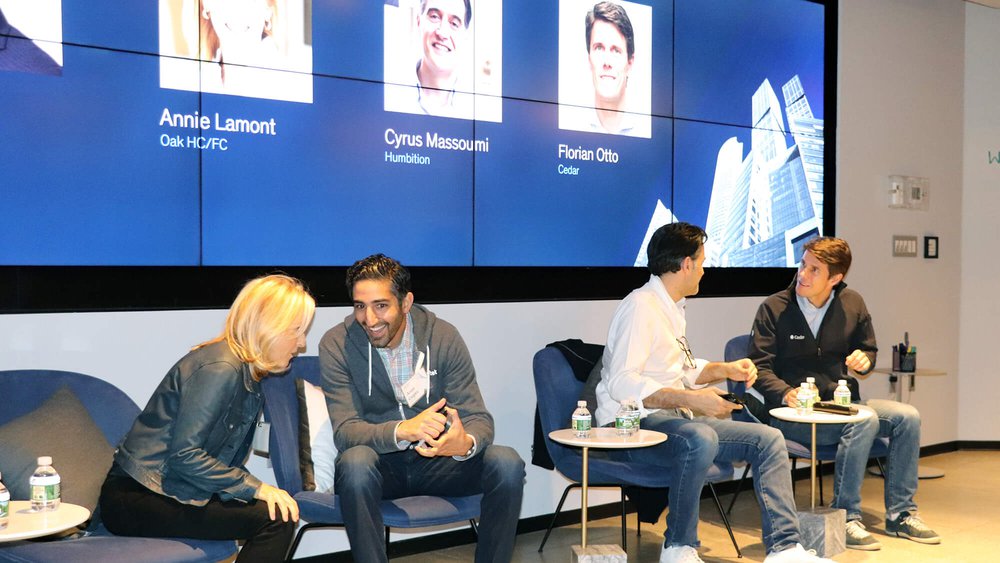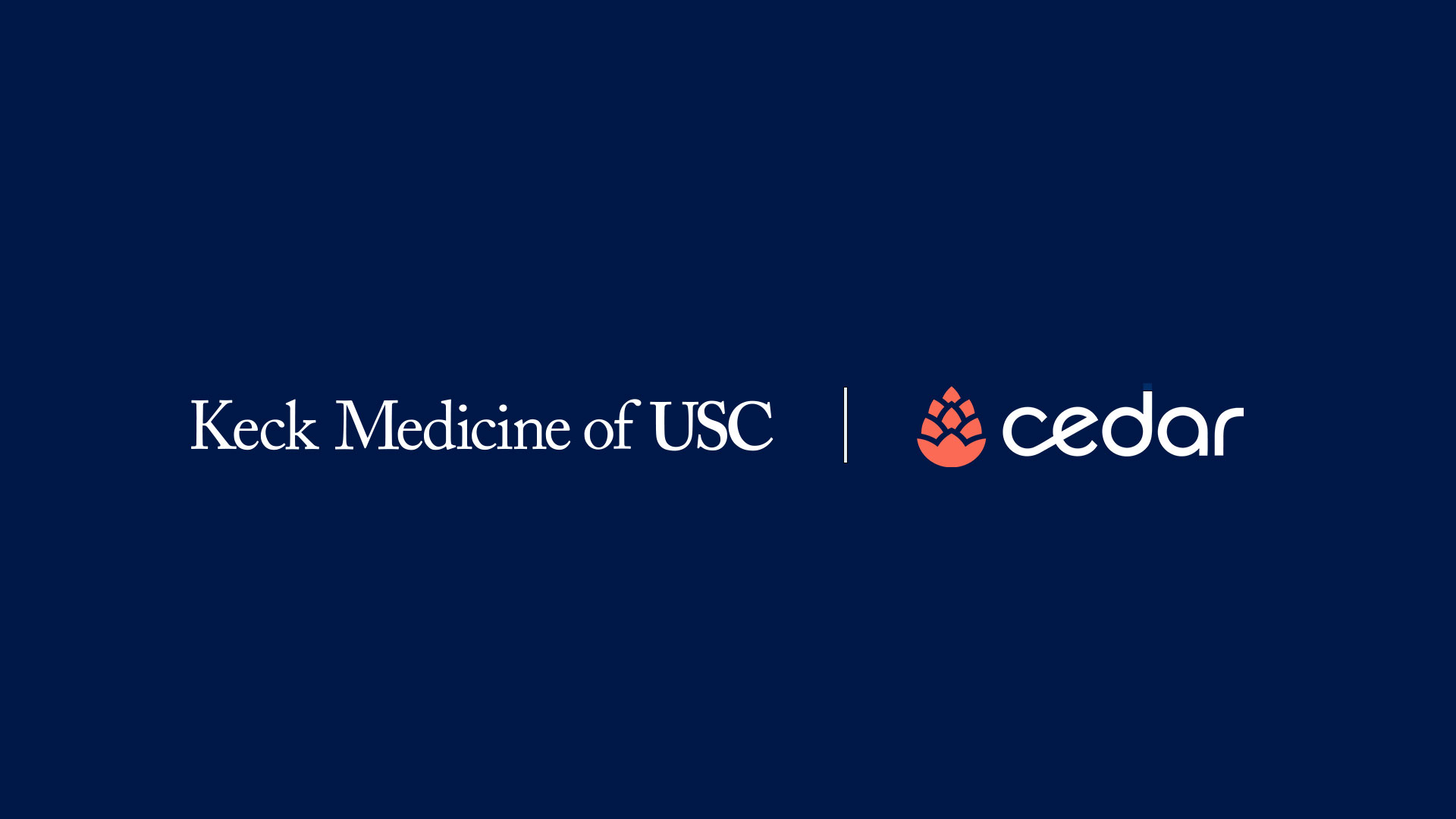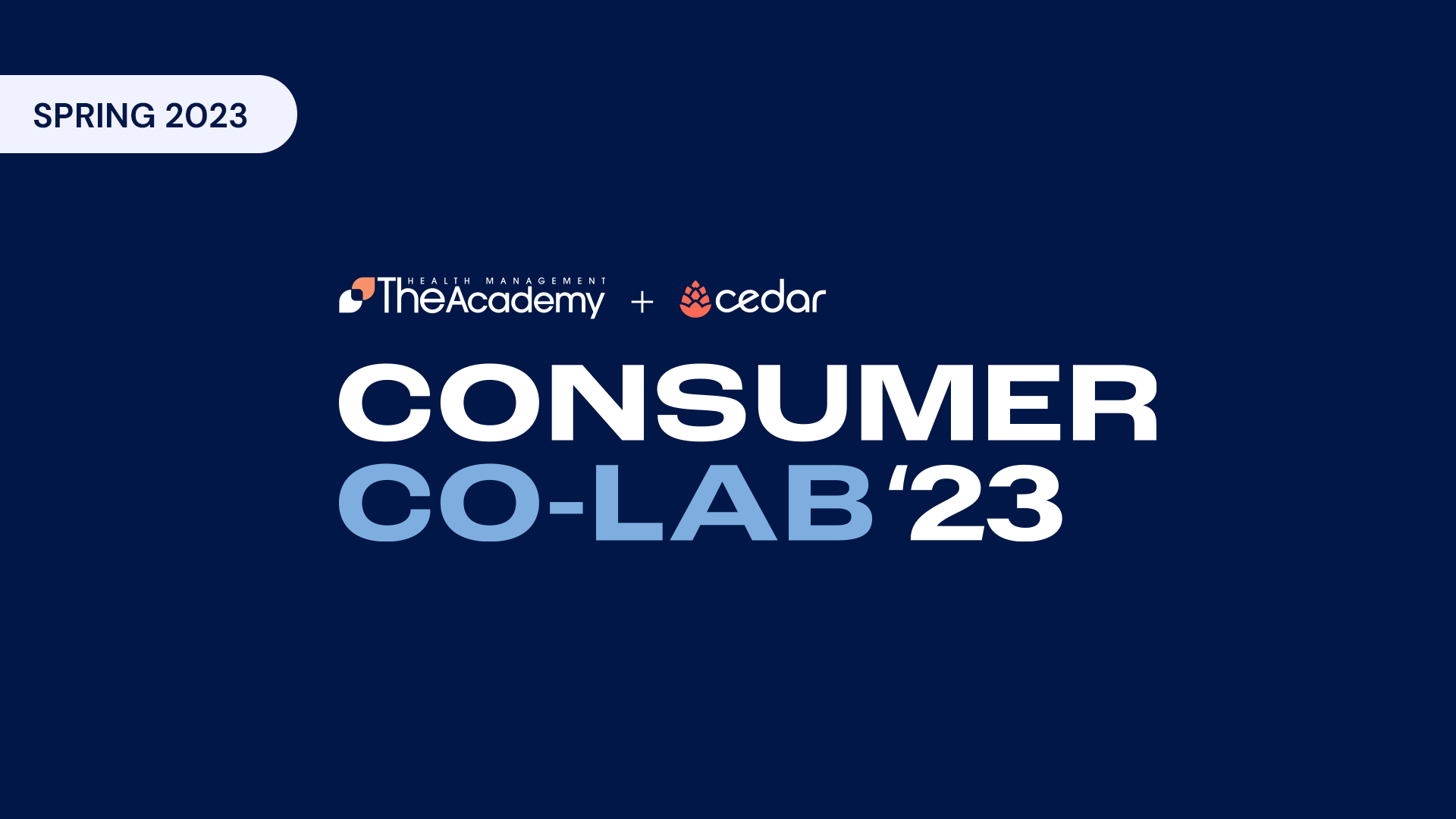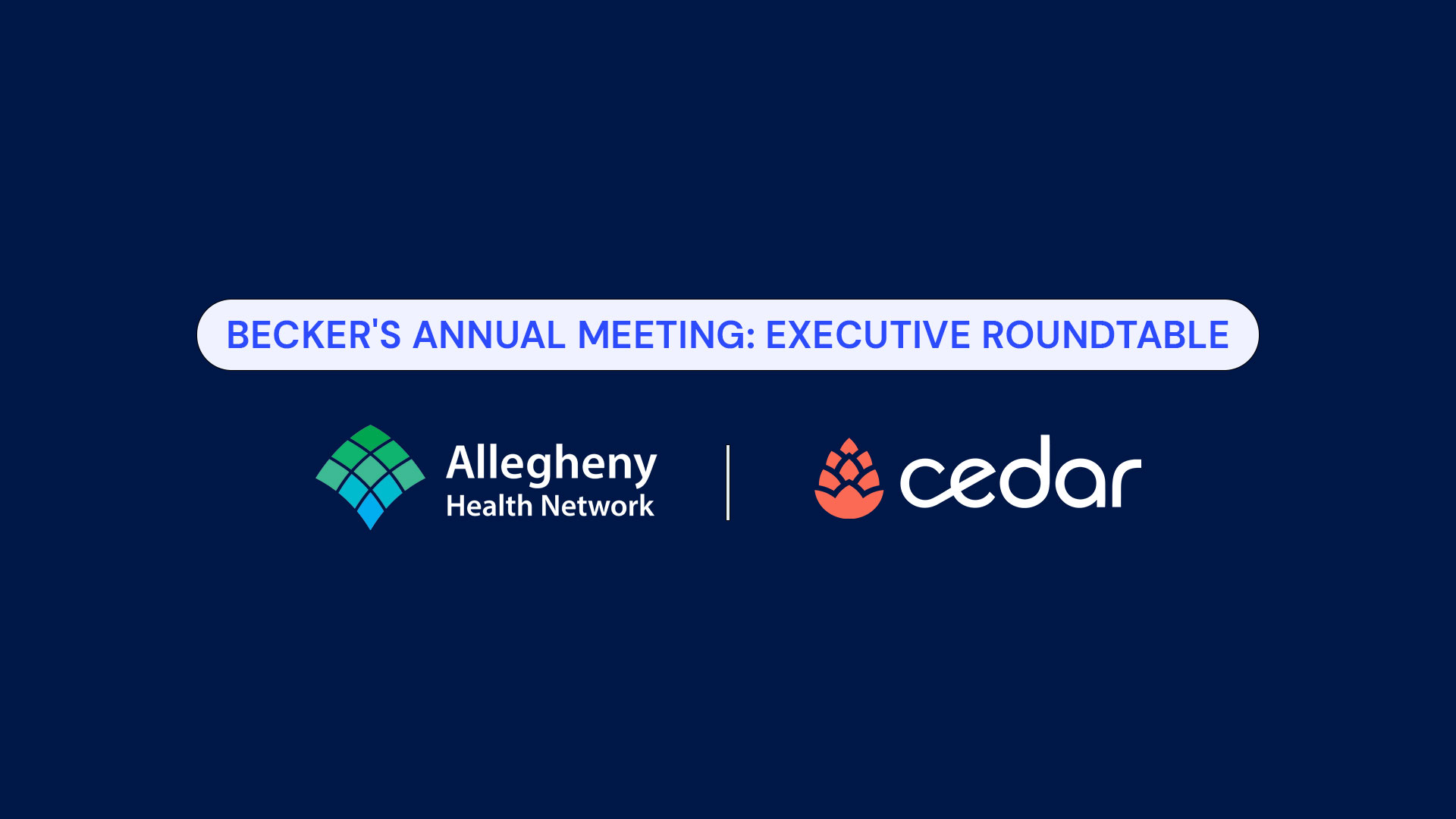Everyone knows that healthcare lags behind other industries in digital transformation and consumer experience. While clinical technology has advanced rapidly, administrative and technical infrastructure is still lagging behind. Many health-tech startups have emerged to fill in critical needs in this environment. So what does it take to build a successful disruptive company in healthcare? That was the central question at the McKinsey SCALE Patient Engagement in Digital Health event on May 9th in New York City. At the event, top NYC investors, entrepreneurs and consultants gathered at the McKinsey Experience Studio to discuss emerging trends in digital health.
The panel discussion included Cyrus Massoumi, founder of ZocDoc and Humbition, Annie Lamont, co-founder and Managing Partner of Oak HC/FC, Arun Gupta, founder of Quartet Health and Florian Otto, Co-founder and CEO of Cedar. With extensive experience in healthcare investing and entrepreneurship between them, the panelists zeroed in on identifying the keys to building a successful venture.
Take a punch (and keep on going)
When asked which companies he chooses to back for investments and why, Massoumi said “The only thing I care about is backing someone who will get punched in the face ten times and take one step forward. I think persistence is the single biggest determinant of success of entrepreneurs.” Persistence is particularly relevant in healthcare where startups face significant inertia and technical challenges compared to other markets. Otto, who co-founded Cedar three years ago to fix the broken financial experience for patients, acknowledged that scaling a company is difficult in any field, but it can be particularly challenging in healthcare where there is a tremendous amount of stasis in the entire system. One reason for the slow pace is the technical complexity involved in delivering high-quality medical care. Gupta, who founded Quartet Health to connect primary care practitioners with mental health resources, mentioned that something like diagnostic imaging is a much harder technical problem to solve compared with photo sharing or ride-sharing apps. Given the likelihood for significant setbacks, Otto said “the most important attribute for a founder in healthcare is patience…progress in healthcare takes much longer but in my opinion it’s worth it because you can help improve so many lives.”
Hire the right mindset, not just the right resume
When asked about the characteristics of employees who thrive in health-tech startups, all panelists agreed that it is not just a matter of relevant experience – the intangibles matter, too. Massoumi told a story of an early mistake he made when his board encouraged him to hire a sales leader with a perfect resume, despite his own intuition that the person lacked the right character. That candidate did not work out, and Massoumi ultimately tapped Florian Otto to lead sales for ZocDoc. “Florian had never directly led a sales team before; he was just a smart doctor, dentist, pilot, kite-boarder… I wish I would have met Florian earlier and I wish I would have trusted my instincts.” Gupta concurred and underscored that selling in a young company is a different kind of challenge: “Making a market is very different from selling in a market. Most young companies are making a market. They are teaching a customer that there is value somewhere they might not have thought about.” The panel agreed that type of challenge typically requires people with diverse skill sets and a variety of backgrounds to succeed.
Cultivate culture (it really counts)
Founders generally find themselves having to make many small decisions every day that will impact the future of the company, Otto noted. For most decisions, he asserted that there is usually a bigger risk in overthinking the choice than making the wrong one. The exception are decisions that could lead to a bad culture. “The number one thing that can kill an early-stage company is bad culture because it prevents you from hiring and retaining the best people. So my primary goal as we scale is to ensure that the culture is as good at the end of the year as it was at the beginning of the year.”
Massoumi agreed that the right culture and leadership are critical to ensuring the viability of a disruptive tech company. At the end of the day, success really comes down to the right people. “I really do believe it’s about investing in the best entrepreneurs who are the most persistent and will never give up,” he said.
To learn more about Cedar’s diverse culture and community, sign up for our Cedar Talks mailing list and check out our employee spotlight series.



